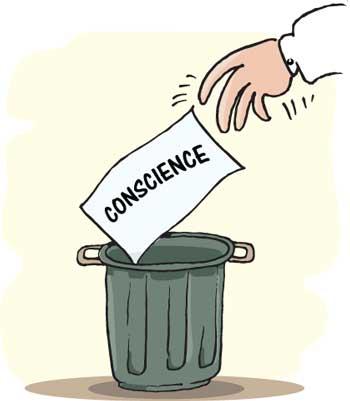03 Nov 2020 - {{hitsCtrl.values.hits}}
 The way the 20th Amendment to the Constitution was passed on October 22 has again opened the debate over the party politics and conscience of members of political parties.
The way the 20th Amendment to the Constitution was passed on October 22 has again opened the debate over the party politics and conscience of members of political parties.
The ruling coalition led by the Sri Lanka Podujana Peramuna (SLPP) had only 148 votes, one less than the required two thirds of members of the whole Parliament for it to adopt the Amendment. Hence, it was expected beforehand that the party would persuade or buy over MPs from the Opposition to pass the controversial piece of legislation.
As expected, eight MPs contested under the main Opposition party, the Samagi Jana Balawegaya (SJB) voted for the Amendment enabling the government to conveniently achieve its target.
During the debate on the 20th Amendment, Nazeer Ahmed, the deputy leader of Sri Lanka Muslim Congress, one of the constituent parties of the SJB, told the House that his party leader, Rauff Hakeem had given the party members the right to vote according to their conscience. Another deputy leader of the same party, M.H.M.Harees echoed this view during a press briefing in Kalmunai on October 25.
Generally, all eight dissidents of the SJB might say they voted for the Amendment as prompted by their conscience, even if they had been coerced or lured by the leaders of the ruling party. In fact, only they know whether it was the conscience or unethical persuasion by the ruling party that led to their decision. However, the general perception is that the ruling party used the carrot or the stick or both to get them in line with it.
These eight members had never campaigned against the 19th Amendment or campaigned for a Constitutional Amendment that would confer the President with power to rein in the entire state machinery, including the judiciary. Hence it is difficult at least to infer that these MPs were prompted by their conscience.
Similarly, to believe that all ruling party members voted to confer the President with such sweeping powers without hurting their conscience is too not logical. The possibility of at least a few members of the Opposition preferring a dictatorship in the country also cannot be ruled out, in spite of them voting against the 20th Amendment.
In a practical sense, the conscience of members of a political party is a phenomenon subordinate to the party discipline. If members of a party genuinely resort to vote according to their conscience for various Bills and motions, the party would very soon disintegrate into pieces or it would no longer a united entity.
In fact, the Constitution, in practical sense bans the members of political parties and independent groups from going against the party decisions, irrespective of them having done so, according to their conscience.
Every party has in their constitution provisions for the members of it to abide by the decisions of the party and its leadership, violation of which result in the expulsion of members from the party. Thus cross over is impossible under the law. The Constitution accepts such expulsions, if it is carried out through a proper and accepted disciplinary process.
However, there has been only one judgement delivered by the Supreme Court upholding the expulsion of members by a party, whereas there have been so many defections and cross-over incidents in the past. That was the expulsion of Gamini Dissanayake, Lalith Athulathmudali and a number of other dissident UNP MPs who had signed a notice of resolution to impeach President Premadasa in 1991.
Therefore, the only way for a member of a political party to act according to the conscience, when the party takes a different stance is to leave the party or to be sacked.
Conscience is a tricky issue in politics. In a degenerated political culture, the conscience is a farce, a veil that hides the corrupt and hypocritical mindset of politicians. Therefore politicians have the audacity not only to vote, but also to praise the 17th, 18th, 19th and 20th Amendments; despite each one of the last three amendments negated the essence of the previous one.
30 Nov 2024 2 hours ago
30 Nov 2024 5 hours ago
30 Nov 2024 6 hours ago
30 Nov 2024 8 hours ago
30 Nov 2024 30 Nov 2024